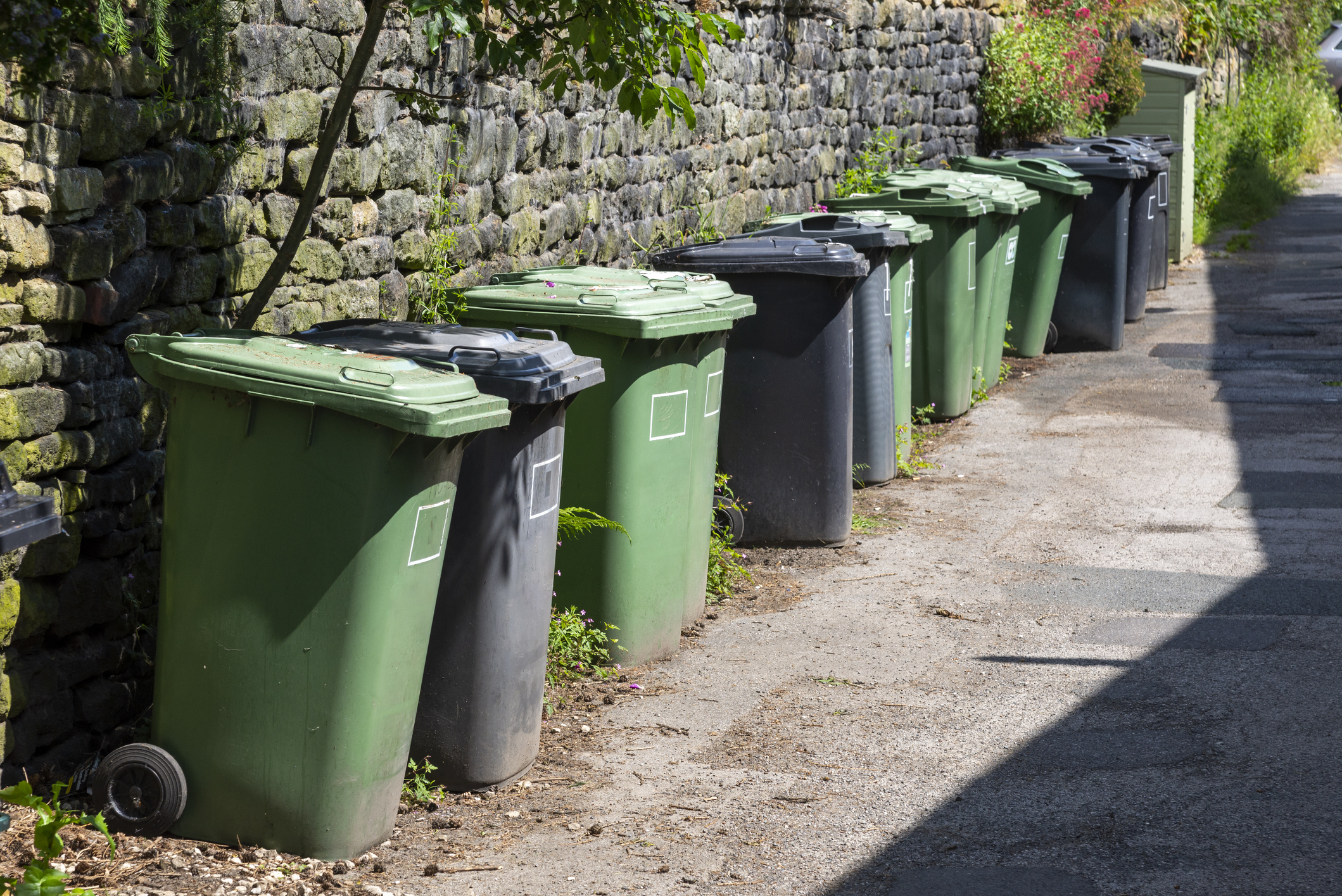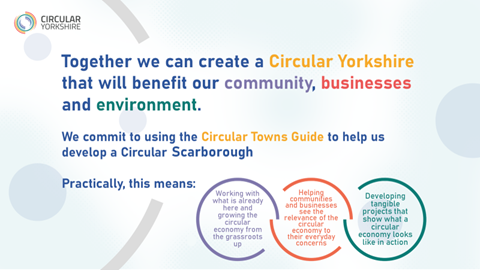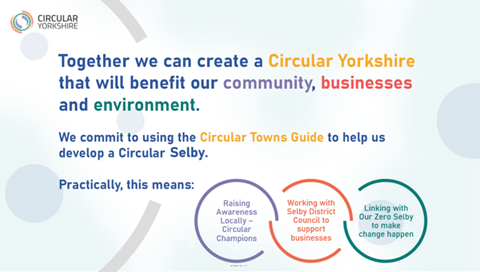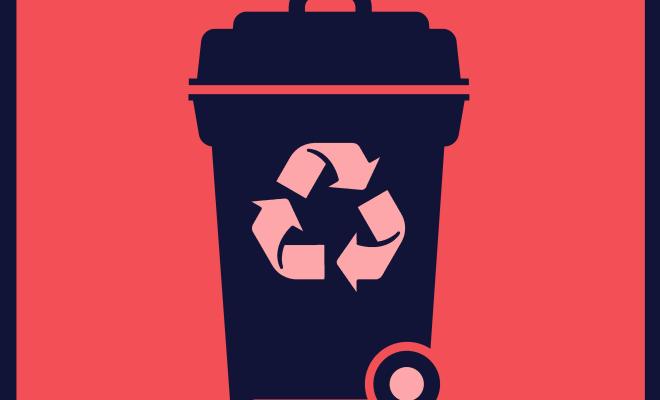01 Mar 2023
How is Action 42 tackling the climate crisis?
Local Enterprise Partnerships (LEPs) bring together councils, businesses and other organisations to agree regional economic priorities and have a key focus on job creation. They set the strategic direction for their region, co-ordinate funding bids and invest in project delivery on the ground.
In 2020 the Climate Change Committee reported that LEPs are an underused tool for delivering national carbon reduction targets – notably, their role in skills development could be an important lever for promoting green jobs.
There are 38 LEPs in England, and they vary in size, ambition, resources and priorities. Historically, LEPs have had a weak record on the environment. However, LEPs have recently identified net zero emissions as a key value for the future, which should give elected councillors more leverage to align LEP spending and decisions with climate targets. In addition, the government issued guidance in April 2022 on better integrating LEPs with local democratic institutions – in most cases through devolution deals.
LEPs have been in direct receipt of significant UK government funding as well as EU funding in the past. This is changing due to a review of LEPs and the UK exiting the EU, but LEPs still have the ability to co-ordinate funding bids to national government, helping local authorities to compete for funds as part of regions.
Representatives from local authorities sit on the board of every LEP. Where LEPs aren't achieving their full potential, local authorities can hold them accountable and push them towards a greener agenda – including investing in green jobs. In York and North Yorkshire, these representatives come from the City of York Council and North Yorkshire County Council (to become North Yorkshire Council in 2023 if the proposed devolution deal – see below – is progressed).
York and North Yorkshire LEP's vision
The York and North Yorkshire LEP’s vision is for the York and North Yorkshire economy to be greener, fairer and stronger. This includes a target for the region to be net zero by 2034, and to be the UK’s first carbon negative region by 2040.
York and North Yorkshire LEP has developed several strategies covering energy, natural capital, farming and the circular economy. It's now published "York & North Yorkshire’s Routemap to Carbon Negative" to provide a co-owned plan for local authorities, businesses, charities, academia and communities to come together and deliver carbon reduction at the necessary pace and scale.
This case study focuses on the Circular Economy Strategy, published in 2020, to minimise waste and pollution, and related activity on green procurement and green skills.
A circular economy is an economic system in which raw materials, components and products maintain as much value as possible over their lifetime. It takes a holistic view of the resources we use – everything is re-used, repaired or recycled, and the system-level approach means every industry involved in the provision of this economy is considered and included. This could include better product design to make items modular or repairable, sharing economies, or using waste to make new products.
The LEP began its circular economy journey in 2018 and was the first LEP to implement a strategy for a circular economy. Circular models have been pioneered predominantly in cities like London and Glasgow. Now, the LEP is co-developing its own approach in a more rural context, including market towns. It’s estimated that applying circular economy principles at scale across the Yorkshire and Humber region could create up to 50,973 jobs.
"As the climate crisis becomes more apparent, we need to find ways of working with the planet, making best use of what we already have, and limiting our use of natural resources to allow our ecosystems to recover. Our Circular Towns project aims to bring this approach into a community setting, and deliver social benefits as well, creating greener, fairer and stronger towns and villages across the region.
The cost of living, food prices and energy costs are rising, putting families and communities under new strains – but the circular economy offers a mechanism to alleviate those pressures, whilst limiting the impact of climate change and emissions.”
Erin Wheeler, Circular Economy Officer at York and North Yorkshire LEP.
Local authorities were strongly involved in developing the Circular Economy Strategy, which was a bottom-up process. Two large workshops attended by over 80 stakeholders were held during its creation.
The local authorities hope that the work will be accelerated if the devolution deal for the area is agreed, as this'll bring more investment for green economic growth and more support for skills training.
What impact has the project had?
Circular Towns
The LEP is helping the region “go circular” through its Circular Towns programme, which has been piloted in 3 initial locations: Malton, Scarborough (also known as Circular Coast) and Selby. Each location is implementing circular practices appropriate to the local context – what works in the rural hinterland of Selby may not be appropriate for the popular seaside destination of Scarborough.
Erin Wheeler, Circular Economy Officer at York and North Yorkshire LEP.
The first pilot was set up in 2019 in Malton and Norton, in Ryedale. The pilot was community-led with a new group, Circular Malton and Norton, formed to champion the cause. The initiative has:
- Promoted the Malton Free Fridge, which redistributes surplus food and reduces waste.
- Held a business-focused seminar, showcasing local business creating competitive advantage through the circular economy, with practical tips and access to support.
- Launched Ryedale Remakes in September 2022, which is a repair and recycling hub taking donations from charity shops and the general public to upcycle them and extend their lifespans. The shop opened in January 2023 and plans to host sessions that are open to anyone who wants to come and learn DIY and repair skills to help keep household goods in use.
- Developed plans for the Eden Circular Hub, a community anaerobic digestion site that'll produce green energy for nearby buildings and biodigestate for farms, alongside offering circular education and support.
Lessons learned from Circular Malton were compiled into the Circular Towns Guide. The guide gives communities a flexible 10-step process to kickstart circular economy initiatives, with the ultimate aim of putting power back in the hands of those communities.
Scarborough announced its commitment to become a circular town in October 2021. The ambition is being spearheaded by local community organisation Coast and Vale Community Action, supported by the LEP. In just a year, the town has:
- Hosted several well-attended repair cafés and a Green Christmas Market.
- Worked with local business on fashion and textiles. One of the town’s circular champions is the owner of sustainable fabric store Material Moves, where classes are run teaching local people how to make, repair and upcycle clothes.
- Explored a community project growing flax, which can be processed into linen. The intention is to revive heritage skills like spinning and weaving while also capitalising on Scarborough’s unique crafting talent.
- Addressed waste, including fishing waste, on the coast through beach clean-ups – which is replicable in other locations along the Yorkshire coastline.
Selby is unique among the pilots as it already had an existing low-carbon project in the community, Our Zero Selby, run by Selby District Association of Voluntary Service (AVS). Our Zero Selby is a collective action project, asking residents what they want from a net zero future across 5 key themes: buildings, nature, food, travel and waste. These priorities have fed into the circular economy work Selby has co-ordinated. The project has held swap shops to redistribute clothes and keep them in use, and at the end of October 2022 it held a meeting of 30 local businesses to lay the foundations for a local circular business forum.
Bryony Boyle, Strategy and Partnerships Manager at Selby District AVS.
The LEP’s Circular Economy Officer meets with the 3 towns on a monthly basis. The intention is for the pilots to mature to the point where projects like the repair cafés can expand into full-time workshops, and that these projects are investable and self-sustaining, feeding money back into the community. Following the ongoing success of the pilots, the LEP is establishing a Circular Towns Network of 10 or more towns in the region.
Green procurement
Going circular involves assessing and rethinking supply chains, and the LEP appointed sustainability consultants Eunomia to review how carbon reduction could be built into local authority procurement across Yorkshire. A baseline assessment revealed that procurement wasn't currently being used as a lever to reduce council emissions, despite the massive impact this could have. To change this, Eunomia has worked with the LEP and its local authority partners to create low-carbon procurement toolkits for local authorities.
Green skills and jobs
Green skills and jobs must be a top priority at all levels of government for a successful transition to a circular low-carbon economy. The LEP’s Circular Economy Strategy pledges to work with education providers – from nurseries all the way up to universities – to begin growing knowledge relevant to the circular economy. This'll include technical skills in sectors like engineering and construction, as well as transferable skills like leadership and systems thinking. There's strong demand from North Yorkshire authorities that are increasingly encountering the green skills gap as a barrier and are now pressuring the LEP to address it.
The LEP is committed to building on its existing work on green skills and jobs. This included the 11th annual York Business Week in 2021, which was run by the City of York Council and focused on the theme of sustainability. The LEP was involved in running sessions exploring green skills investment across different sectors.
The urgent green skills demand from councils has been useful for the LEP, because it provides evidence that helps the organisation target its stretched resources effectively. A study commissioned in 2021 on the local green skills gap will be the foundation for transforming the LEP’s past work into a more strategic future approach. The LEP’s role will be to facilitate activity and better understanding of skills requirements by further education providers, local government and industry in the region.
Circular skills are important as people enter the workforce, but adaptive skills training of the existing workforce is also important. In 2022 the LEP focused on the green skills and knowledge gap experienced by small businesses that want to adapt to climate change but are struggling to – a commonly cited issue.
Supporting businesses
The ReBiz programme, run by the West Yorkshire Combined Authority, delivered consultancy and free audits (worth £1,200) to 40 businesses, focusing on reducing waste and cutting energy use. The programme also offered installation of low-carbon and circular technologies to help businesses move towards a net zero future.
Together with the West and North Yorkshire Chamber of Commerce, the LEP has identified the 6 key benefits of the circular economy for business – including how to cut energy costs – and run informational sessions with guest speakers based on each.
In summer 2022 the LEP also produced and published a net zero toolkit for businesses that ties in with the 6 benefits. The toolkit includes a basic beginners' checklist, a future planning tool and an in-depth carbon calculator. Drop-in sessions on how to use the toolkit were run to support businesses to get going. The LEP is experiencing increased interest in sustainability measures from businesses due to the energy crisis. Throughout 2023, a group of businesses in Selby will be jointly working through the toolkit together to enact sustainable changes in their operations.
The LEP wants to democratise the technologies and resources needed for businesses to go circular and be more sustainable. In view of this, the LEP intends to refine the net zero toolkit into a more useable web-based format in 2023.
Circular Economy Framework for Yorkshire and the Humber
The success of the LEP’s work on circular economy has helped establish it as a practical and workable option that could benefit regions across the UK. To this end, the Yorkshire and Humber local authorities Chief Executives’ net zero group commissioned the design of a circular economy framework that would deliver an ambitious work programme across the whole of Yorkshire and the Humber.
The Yorkshire Circular Lab led the development of the framework, in close collaboration with the York and North Yorkshire LEP. The strategy cuts across 8 key areas, including finance, waste minimisation and the green skills that are needed to enable a Yorkshire-wide circular economy. Funding from the North East Energy Hub and Yorkshire and Humber councils has been secured to fund a Circular Economy Co-ordinator who'll work alongside the LEP. This role will help build on current successes and deliver this framework to the wider region.
What made this work?
Regional co-ordination
Working between local and national levels, LEPs are well placed to be a bridge between the two. By co-ordinating funding and action across boundaries, LEPs make action more coherent and impactful. An example is the dissemination of good practice to spread the circular towns concept.
The York and North Yorkshire LEP increases its influence through membership of the Northern Powerhouse 11, a group of 11 LEPs from the North of England.
Evidence base
In 2019 the LEP commissioned a major piece of work, the Carbon Abatement Pathways Study, which modelled different scenarios for carbon emissions reductions across the 5 most carbon-intensive sectors in York and North Yorkshire – buildings, transport, industry, power and land use/agriculture – and provided action plans for each. It included some high-level circular economy concepts, such as increased recycling and resource efficiency.
Recommendations for industry included:
- Support local workforce training focusing on circular economy related jobs.
- Further research to increase circularity through industrial recycling of materials like glass, plastics and aggregates.
- Establish local markets for the end products of the agricultural sector.
Jos Holmes, Local Authority Climate Action Co-ordinator at York and North Yorkshire LEP.
Such studies are crucial for informed decision making about climate action but can be expensive for councils to conduct or commission. The study has benefited local authorities by providing an evidence base that allows them to draw up their own plans for decarbonisation. It has also lent credibility to these plans.
Equal partnership
Effective outcomes are achieved when the LEP’s relationship with local authorities is a two-way street, not a top-down endeavour. In York and North Yorkshire, the LEP carries out work on behalf of local authorities and vice versa, for instance:
- The LEP has invested heavily in feasibility studies, which are often an inconvenient barrier for councils. This has enabled initiatives to get off the ground quicker and has ensured a strong pipeline of carbon cutting projects for the region.
- Between November 2019 and April 2020, Scarborough Borough Council partnered with the University of Hull to produce research on evolving a circular plastics economy. This was prompted by the council’s desire to become a single-use plastic free authority but also provides useful evidence that'll feed into the LEP’s circular economy priorities.
Katie Thomas, Senior Strategy Manager for Low Carbon & Environment at York and North Yorkshire LEP.
Regular communication
The LEP’s Local Authority Climate Action Co-ordinator convenes the climate leads from each of its member local authorities every other month. This forum enables the LEP to hear what challenges local authorities face and identify any gaps that the LEP can fill.
The Directors of Development group, consisting of councils’ directors for economic development and regeneration, meets every month to discuss and agree funding towards LEP-led projects.
This also helps align the climate action work of neighbouring councils. For example, a portion of a £100,000 funding injection agreed by the Directors of Development in 2021 went towards the LEP’s work on green procurement.
Effective board representatives
As representatives on LEP boards, passionate councillors and council officers can be a force for change. The Chief Executive of Harrogate Borough Council, Wallace Sampson, has been a low carbon champion and strong advocate for circular economy on the York and North Yorkshire LEP and at a regional Yorkshire level.
What resources were needed?
Between 2014 and 2020, the York and North Yorkshire LEP invested £220 million in the region. This supported a range of work, from flood defence improvements to digital connectivity and green public transport. The LEP used core funding from central government to fund its circular economy work.
York and North Yorkshire LEP secured funding from local authorities themselves to create the post of Local Authority Climate Action Co-ordinator, which sits within its low carbon team, to increase collaboration between authorities.
The Circular Economy Strategy was developed collaboratively. Internally, the LEP has created the dedicated role of Circular Economy Officer and a cross-cutting group, the "C-Team", tasked with embedding circular economy principles across all the LEP’s core teams and activities. Externally, it's established a Circular Economy Steering Group made up of key stakeholders and influencers.
Lessons from Yorkshire
LEP role and review
LEPs are voluntary partnerships, not statutory bodies, and legally are tasked only with increasing economic growth. This doesn't have to be low-carbon, energy-efficient growth, as there's no formal mandate for LEPs to take responsibility for acting on climate change. This has resulted in the diverse range of approaches by England’s 38 LEPs. However, the purpose and funding of LEPs is currently under review by the government and tied to the proposals of the Levelling Up White Paper and the new Shared Prosperity Fund (which will replace some EU funding). Collectively, LEPs have set out an intention to tackle climate change.
Capacity
The main challenge for the York and North Yorkshire LEP is capacity. The size of the low carbon team doesn't match the high volume of demands the LEP receives from stakeholders, so staff members must make sure not to spread their efforts too thinly.
Funding changes
New funding, such as the Levelling Up Fund, will go straight to councils rather than to LEPs, meaning a good, communicative working relationship between LEPs and councils is important for delivering a green future.
Organisational changes
North Yorkshire County Council and its 7 district and borough councils are currently undergoing re-organisation into a single unitary authority, North Yorkshire Council, which will begin operations in May 2023. Now under development, the local authorities are working together to coalesce their existing climate change work into a single North Yorkshire Council Climate Change Strategy.
Devolution
The LEP has supported demands for devolution and has been closely involved in drawing up York and North Yorkshire’s devolution deal with central government, which was confirmed in August 2022 (subject to ratification by the relevant parties). The LEP’s ambition for the region to be carbon negative by 2040 was the central selling point for the devolution deal and has been embedded across all the requests to central government related to it. Yorkshire also secured £7 million to drive the green economy and reach its carbon negative target as part of the final agreement. The devolution deal for Yorkshire will see the LEP integrated into the new York and North Yorkshire Combined Authority, which is scheduled to come into being by November 2023.
In terms of the circular economy, devolution should give the proposed mayoral combined authority greater control over funding and therefore greater flexibility in terms of how and where it’s spent, without the hurdle of national funding restrictions.
Useful information
To find out more about the York and North Yorkshire LEP, please contact Katie Thomas.
Other examples of LEPs include:
- The Cornwall and Isles of Scilly LEP, which has championed Cornwall as a leader of the UK’s green industrial revolution.
- The Leeds City Region LEP, which also has a good record on tackling climate change.
Friends of the Earth's view
Councils should play a full part in encouraging and helping local and regional bodies to address the climate and nature emergency, so it's good to see City of York Council and North Yorkshire County Council working with the LEP to deliver a circular economy strategy. Councils can have a bigger impact through convening others and encouraging ambition – although both these councils must also make sure their own Climate Action Plans are ambitious enough.
LEPs need to be more accountable to the communities living in the area they cover – in York and North Yorkshire further integration with local authorities via the forthcoming devolution deal should help to facilitate this.
York and North Yorkshire LEP needs to ensure that all its decisions are aligned with legally binding national net zero targets and that it fully embraces the opportunity to create high-quality green jobs in the area.
Friends of the Earth is show casing specific examples of good practice in tackling climate change, but that doesn’t mean we endorse everything that council is doing.
This case study was produced by Ashden and Friends of the Earth. It was originally published in March 2022 and was last updated in March 2023.







